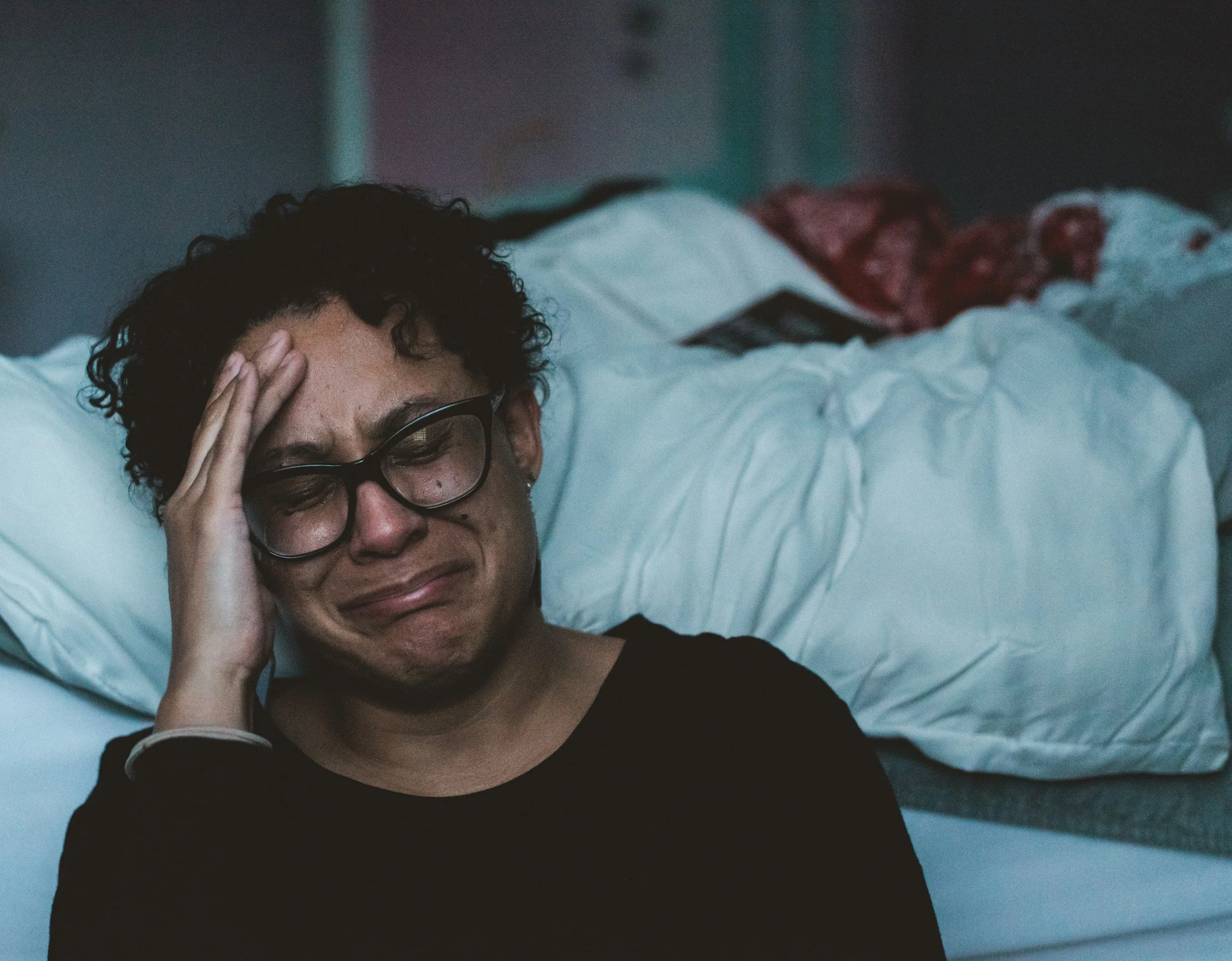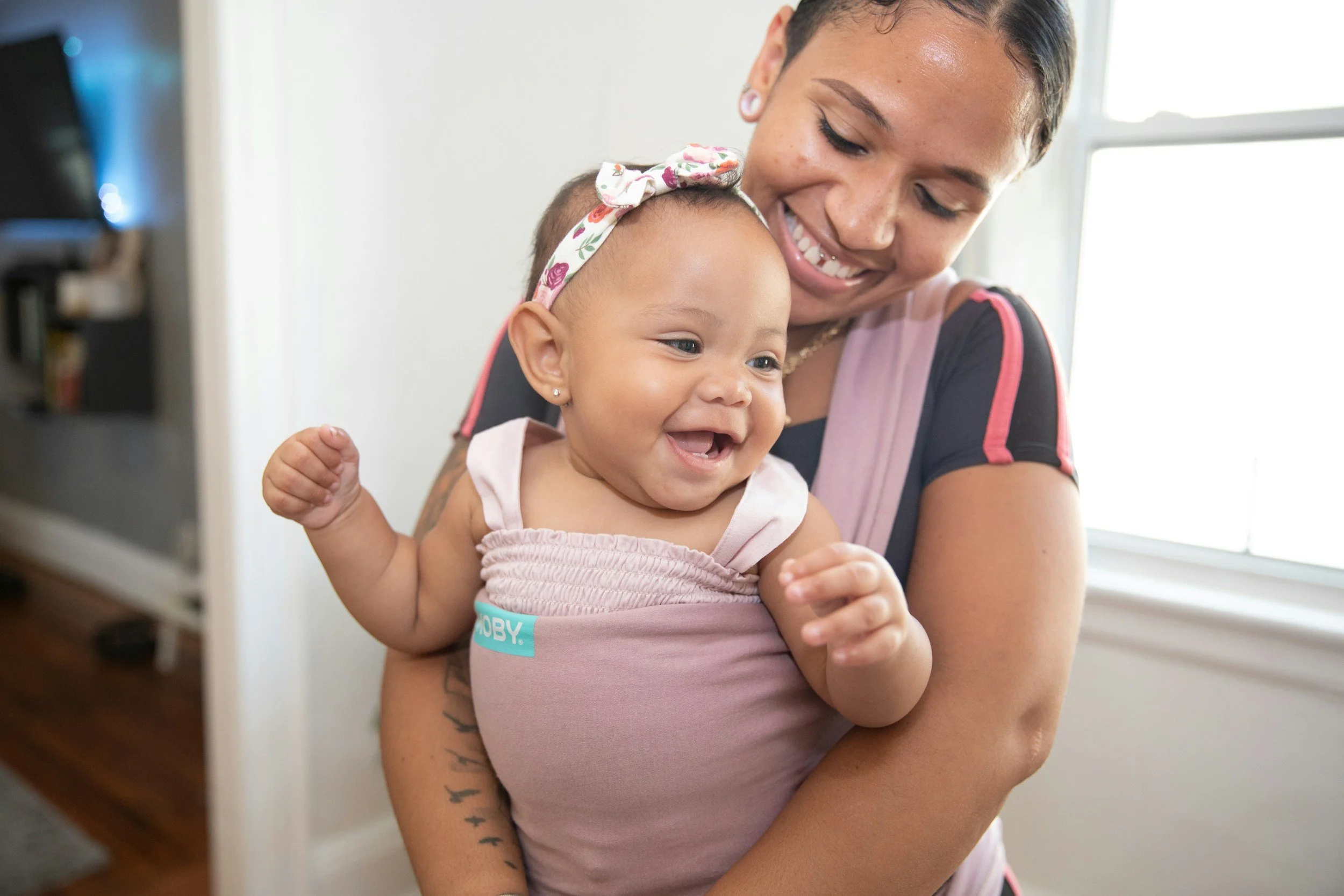How the Mother Wound (and Father Wound) Shows Up in Your Motherhood
Motherhood has a way of bringing everything to the surface.
The parts of us we thought we had buried. The roles we were forced into. The stories we’ve carried for far too long.
As a trauma therapist specializing in maternal mental health, I work with so many mothers who feel stuck, overwhelmed, or not “good enough” in their parenting. And often, they don’t realize that what they’re experiencing isn’t just about their baby or their current season of life, it’s the ripple effect of something much deeper: the mother wound and father wound.
If you’ve ever felt like you’re parenting from a place of pain, perfectionism, or emotional disconnection - this might be why. Let’s unpack it together.
How the Mother Wound (and Father Wound) Shows Up in Your Motherhood
What Is the Mother Wound?
The mother wound refers to the emotional pain and unmet needs you carry from your relationship with your mother. It’s often passed down unconsciously through generations and shows up in how you view yourself, your worth, your emotions—and how you mother your own children.
Your mother may have:
Been critical or emotionally unavailable
Projected her unhealed pain onto you
Taught you to suppress your needs to be “good”
Created a relationship based on conditional love
Even if she loved you deeply or did her best, the mother wound can still linger especially in your own motherhood.
Symptoms of a Mother Wound in Your Motherhood:
You might be living out the impact of the mother wound without even realizing it. Here’s how it often shows up:
You Feel Like You’re Never Doing Enough
No matter how much you give, you’re always behind. Guilt is your baseline. Rest feels unsafe.
You Try to Be the “Perfect Mom”
You overfunction. You rarely ask for help. You’re scared that if you don’t do it all, your children will feel how you once felt—neglected, unseen, or not enough.
You Struggle with Boundaries
Saying “no” feels selfish. You feel responsible for everyone else’s feelings. You might be trying to overcompensate for what you didn’t get.
You Feel Emotionally Disconnected
You want to be fully present with your children but you’re emotionally exhausted. You might shut down, go numb, or feel overwhelmed by their needs.
You’re Terrified of Becoming Your Mother
You overcorrect and try to do the opposite but it leaves you burnt out, overextended, and still feeling like you’re failing.
You Don’t Feel Safe Having Needs
You prioritize your family to the point of self-abandonment. Your needs weren’t respected growing up, so now you don’t know how to advocate for them.
You Overidentify with Your Child’s Pain
When your child is upset or struggling, it feels like your fault. Their feelings trigger unhealed parts of you, and it’s hard to stay grounded.
What About the Father Wound? How It Shows Up in the Mother Wound
The father wound often hides beneath the surface of the mother wound and shapes how you relate to your partner, how safe you feel in your feminine identity, and whether you feel like you can trust others to show up for you.
Signs the father wound might be affecting your motherhood include:
You Don’t Trust Anyone Else to “Do It Right”
You carry it all, even when you’re drowning. You don’t believe anyone will care for your child the way you do.
You Feel Uncomfortable Relying on Your Partner
Support feels unfamiliar. You want help, but when it’s offered, you get defensive or reject it.
You Have Deep-Rooted Fears of Abandonment
You need constant reassurance or shut down completely when things feel uncertain or emotionally distant.
You Crave Approval and Avoid Conflict
You grew up walking on eggshells or trying to be “good” to earn love. Now, you carry that same pattern into your relationships and parenting.
You Struggle to Let Your Guard Down
Vulnerability feels threatening. You’re hyper-independent and have trouble receiving whether it’s love, support, or rest.
You Repeat or Reject His Patterns
Whether your father was absent, critical, inconsistent, or emotionally unavailable, you either replicate his patterns or try so hard not to that it backfires.
The Cost of Unhealed Wounds in Motherhood
Unhealed mother and father wounds don’t just stay in the past, they leak into how you show up in the present. They impact your relationships, your nervous system, your ability to regulate under stress, and the way you attach to your children.
And the hardest part? These wounds often go unspoken. Society praises selfless mothers who give until there’s nothing left but that’s not sustainable. That’s survival. And you deserve more than survival.
You deserve healing.
How Therapy Can Help You Heal From Mother and Father Wounds in Florida
How Therapy Can Help You Break the Cycle
Therapy especially trauma-informed therapy and EMDR can help you:
Reconnect with the parts of you that were silenced or shamed
Release generational patterns you no longer want to pass on
Build a secure, compassionate relationship with yourself
Navigate motherhood with more presence, peace, and ease
Learn how to feel safe in your emotions and connected in your relationships
This work is not about blaming your parents. It’s about understanding your story so you can stop living in reaction to it and start parenting from a place of intention, wholeness, and healing.
You Can Be the Cycle Breaker Without Burning Out
Healing the mother wound (and the father wound that often feeds it) takes courage. But every time you choose compassion over shame, rest over guilt, or boundaries over burnout, you’re doing the work.
If you’re ready to do this work, therapy can be your safe space to start. I offer trauma therapy and EMDR therapy in Florida , Tennessee and New York to help mothers like you feel seen, held, and supported through the deepest parts of your healing.



